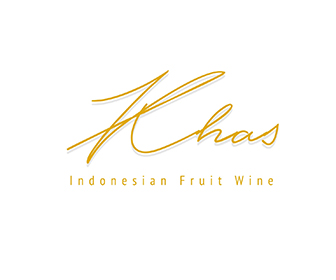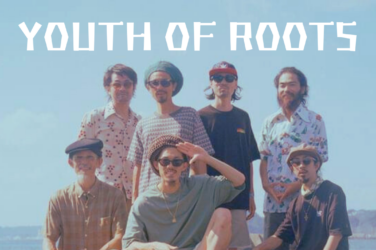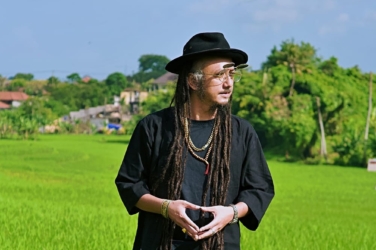Behind the heavy basslines and the night haze of Glasgow stands a figure who bridges two worlds: the musical traditions of Scotland and the Jamaican sound system culture. Tom Spirals is not only an MC and musician, but also a driving force, educator, and torchbearer of the community spirit. For the 5th anniversary edition of Kultur Dot Media, we retrace his journey—from punk to dub, from music as a teenage escape to music as a vehicle for solidarity.

Tom Spirals grew up in a household where political debate was part of daily life. His father consistently encouraged a critical perspective on the world, an influence that made resistance a familiar idea from an early age. At ten, he picked up an instrument and gravitated toward punk—a genre that, at the time, matched both his energy and worldview.
“My dad was always political. So when I first started playing music at ten, punk immediately drew me in. Its energy just clicked with me,”
he recalls.
At the same age, Tom began hanging out with older friends in the boarding scene, where skateboarding, friendship, and music were tightly connected. Through them he discovered ska punk, a new path that instantly captivated him. The upbeat energy of ska stuck with him right away. “It felt like my own heartbeat,” he says.
At fifteen, Tom Spirals formed a band called Skayaman, his first laboratory for experimenting with ska and reggae. It was here that he began writing songs and developing a deeper sense of rhythm. His journey continued at the Knockengorroch Festival, where he encountered Mungo’s Hi Fi for the first time—the Scottish sound system collective that introduced him to the world of dub.
“The first time I heard Mungo’s play, it felt like the world collapsed and was rebuilt through bass. I was completely swept away. I never imagined that years later I’d be touring the world with them,”
he recalls.
This trajectory shaped Tom Spirals’ identity. From the politically charged energy of punk, to the vibrancy of ska, the warmth of reggae, and the meditative depth of dub—each stage left a distinct imprint. Together, these experiences placed Tom in a unique position: bridging Scottish musical traditions with Jamaican sound system culture, and bringing local roots into dialogue with a global perspective.

Sound System: Community and Ecology
Glasgow, the hometown of Tom Spirals, offers a diverse musical landscape. It was here that he found a creative home through Walk N Skank, a weekly event that introduced sound system culture directly to the community.
At these sessions, Tom worked closely with Mungo’s Hi Fi and performed alongside guest artists such as Mr Williamz, Charlie P, Senor Wilson, and Solo Banton. These encounters helped him absorb the raggamuffin style and develop a distinct MC character. Beyond performing, he also took on the role of promoter—handling the event from scratch, even if it meant going straight to class the next morning.
“Tiring, but worth it,” he says.
Walk N Skank was built on hard work, consistency, and community spirit. After running for a decade, the event came to an end due to the pandemic and a change in venue management. Yet its legacy remains clear: it showed that Glasgow’s sound system culture is not just nightlife entertainment, but a cultural space that nurtures solidarity.
Beyond the stage, Tom channeled this collective energy into The Soundsystem Project. Over the past eight years, he has guided young people in Scotland through the process of building a sound system from scratch—covering everything from MCing and DJing to technical aspects like wiring and speaker setup.
“Everyone can get involved. Want to MC or DJ? Go for it. Want to dig into cables and speakers? That’s fine too. The point is to make sure everyone feels they have a place in the music,” he explains.
Through this approach, music becomes a shared learning space—a place to build confidence and forge real connections. For Tom, the essence of sound system culture is not just in the output from the speakers, but in the collective process that brings people together.
This tradition has deep roots in Scotland. Messenger Sound System laid the groundwork, and Mungo’s Hi Fi paved the way for the next generation, including Tom. Today the landscape has expanded with crews like Hometown, Crucial Roots, Mighty Oak, Iron Aye, Cenote, and An Dannsa Soundsystem. Meanwhile, emerging names such as James Hometown, Wends, and Benji Longstaff are beginning to rise—artists who may soon become the next faces of international festivals.
Tom The Torchbearer
The peak of Tom’s journey came with An Dannsa Dub, a project he co-founded with Euan McLaughlin during the pandemic. Together, they fused heavyweight dub with traditional Scottish instrumentation, calling it Future Dub from Ancient Scotland.
“We want this music to remain rooted in our land and culture, while still being relevant on the world stage,” Tom explains.
A collaboration with Gaudi and Paolo Baldini gave birth to the album Through The Storm—a milestone that marked the maturity of their concept. Interestingly, bridging these two cultures turned out to be far less complicated than one might expect.
“Dub and traditional Scottish music both carry a rebellious spirit, both stand with the people. That’s the common thread,” Tom says.
His vision for sound system culture is one of openness: expanding global networks, making space for local interpretations, while safeguarding the essence of the music—freedom, resistance, and community.
“The hope is that this culture keeps growing, keeps its meaning, and never becomes just a party,” he adds.
And if he could one day greet King Tubby? Tom already knows the words:
“Thanks a lot, brother! Ever heard Scottish dub before?”
A simple yet loaded statement, almost like a declaration: dub has evolved into a global language, with local accents echoing from every corner of the world.

Tom Spirals’ journey underscores the fact that musical identity today is no longer confined by geography. He carries Scotland’s roots into the global dub conversation, showing how tradition can transform without losing its soul. From personal experiments to international collaborations, his work stands as proof that music stays alive through exchange, risk, and the courage to innovate.
(Text: Keyko, Editor: Sam)





Show Comments